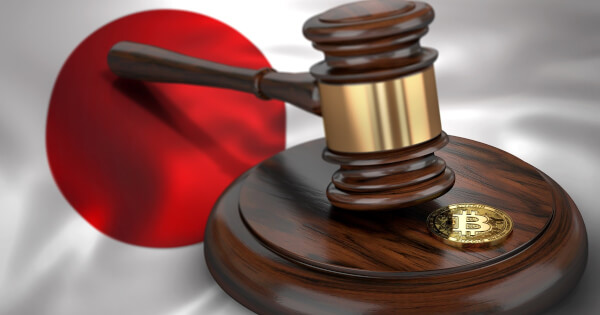Tokyo District Court Ordered Japan’s First Bitcoin Seizure
Lucas Cacioli Aug 20, 2020 04:30
The Tokyo District Court has set a legal precedent for the cryptocurrency industry in Japan, by issuing the first Bitcoin seizure.

The Tokyo District Court has set a legal precedent for the cryptocurrency industry in Japan, by issuing the first-ever Bitcoin seizure in the nation’s history.

The Tokyo District Court ordered a seizure of nearly $50,000 worth of Bitcoin (BTC) in relation to a cyberattack hack that was enacted against Coincheck exchange in 2018—setting a Japanese legal precedent as the first issued cryptocurrency seizure.
According to Japanese media publication Kyodo, the seizure order was issued at the request of the Tokyo Metropolitan Police Department.
The police have already seized the Bitcoin which was being hoarded by a Hokkaido doctor and executive from Osaka. Both men were arrested in March 2020, for their involvement in the hack against Coincheck Exchange.
The Hokkaido doctor and Osaka executive we accused of purchasing the stolen cryptocurrency, which at the time was in the form of NEM (XEM) through the dark web. Both men were allegedly aware of the illicit status of the currency which violates the organized crime laws of the country.
Coincheck suffered an attack that saw over $500 million worth of the cryptocurrency NEW stolen from its wallets. While the arrested Japanese men are complicit in have purchased the stolen goods, it was revealed that the personal computers of Coincheck employees were allegedly found to have been infected by a virus associated with Russian hackers.
Former Nissan CEO Wanted in Japan
Japanese authorities are currently looking for Carlos Ghosn, the former Nissan Motors CEO and Chairman, who allegedly paid cryptocurrency worth nearly $500,000 to escape criminal charges he was facing in Japan.
According to a court filing by US prosecutors, Ghosn fled Japan to his native country Lebanon on board a private jet is hidden in a musical equipment box. It is claimed that the crypto payment was made between January and May this year, but before this, Carlos had wired $862,500 to a firm linked to Peter Taylor in October 2019 before his December getaway.
Some of the financial crime charges that Ghosn faced in Japan included understating his compensation in Nissan Motors’ financial statements. Japanese prosecutors claimed that he only declared nearly $88 million, and this was only half of what he received between 2011 and 2015.
Image source: Shutterstock.jpg)